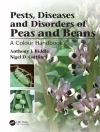Biopolymers are polymers that are naturally sourced from renewable resources such as plants, animals, and microorganisms. These polymers are gaining increasing attention due to their biodegradability, biocompatibility, and non-toxicity, making them an attractive alternative to traditional synthetic polymers. ‘Biopolymeric Nanoparticles for Agricultural Applications’ focuses on the use of biopolymeric nanoparticles for various agricultural purposes. It explores the potential of these nanoparticles in improving crop productivity, enhancing soil quality, and reducing the environmental impact of agricultural practices.
Biopolymeric nanoparticles have gained significant attention in recent years as a promising technology for various agricultural applications such as crop protection, nutrient delivery, and soil remediation. These nanoparticles are typically made from biodegradable and biocompatible materials, such as chitosan, alginate, and starch, and offer several advantages over conventional agricultural formulations including improved stability, controlled release, and enhanced efficacy.
This book provides a comprehensive overview of recent advances in the design, synthesis, characterization, and application of biopolymeric nanoparticles in agriculture. It discusses the various biopolymeric nanoparticles that can be utilized in agriculture such as chitosan, cellulose, starch, and protein-based nanoparticles. It delves into their properties, synthesis methods, and characterization techniques. The primary purpose of this book is to provide a comprehensive understanding of the applications of biopolymeric nanoparticles in agriculture. It bridges the gap between the fields of nanotechnology and agriculture, offering insights into the potential benefits and challenges associated with their use.
สารบัญ
Biopolymeric Nanoparticles for Agricultural Applications: Note from editors.- Current trend in biopolymer-based hydrogels for use in agriculture.- Biopolymer based nanocomposites for adsorption/recovery of fertilizer nutrients for agricultural applications.- Polysaccharide Biopolymer Nanoparticles as Soil Nutrient Delivery.- Biopolymer-Derived Nanomaterials for Improved Fertilizer Efficiency.- Encapsulation of soil nutrients for plant growth and development.- Nano-based Biopolymers as Antimicrobials.- Chitosan biopolymer nanocomposites for agriculture applications.- Biopolymer-Based Nanopesticides for Pesticides Degradations.- Zein- based nanomaterials for Food and Agriculture: A Review.- Biopolymeric matrices for food packaging.- Green Approach for Biopolymer-Based Food Packaging Films Enhanced by Zinc Oxide Nanoparticles.- Biopolymer-based nanomaterials for post-harvest treatments: A Review.- Biopolymeric as agrochemicals nanocarriers.- Nano-Based Biopolymers as Adsorbent Materials.- Impact of biopolymers in a circular economy.
เกี่ยวกับผู้แต่ง
Dr. Kamel A. Abd-Elsalam, Ph.D., is a Research Professor at the Plant Pathology Research Institute in Giza, Egypt. He has published 30 books on nanobiotechnology applications in agriculture and plant protection and has served as the Editor-in-Chief for three book series with major publishers, including Springer.
Ayat Farghily Hashim is a researcher at the Food Industries and Nutrition Institute in Egypt.
Farah Kamel Ahmed is a Faculty of Agriculture graduate and a Master Student & researcher in the Nano-Biotechnology Department, Faculty of Nanotechnology for Postgraduate Studies, Cairo University, Sheik Zayed Campus.
Professor Dr. Sabu Thomas is Former Vice-Chancellor of Mahatma Gandhi University. He is a Professor of Polymer Science & Engineering in the School of Chemical Sciences and Founder/Director of the International and Inter University Centre for Nanoscience and Nanotechnology.












